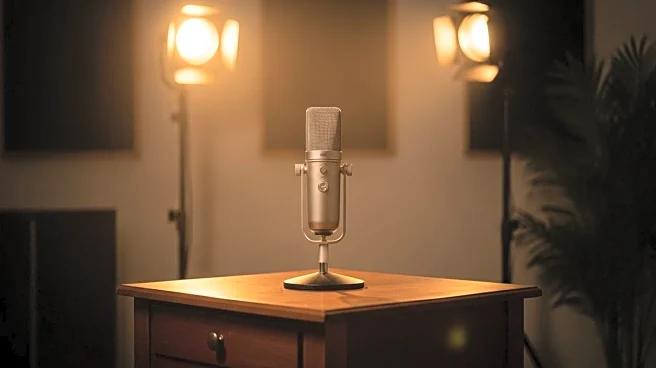What's Happening?
PinkPantheress made her debut at NPR's 'Tiny Desk' concert series, opting for a stripped-down performance without her usual Auto-Tune. The 24-year-old artist expressed initial hesitation about performing without vocal adjustments but ultimately decided to embrace the challenge. Her set included eight tracks, featuring reimagined versions of her viral hits like 'Illegal' and 'Pain.' The performance showcased her versatility, with PinkPantheress playing the harmonica and incorporating jazz elements into her music. The artist's choice to perform in a more intimate setting aligns with her belief that her music is best appreciated in smaller venues, as she shared in a previous interview.
Why It's Important?
PinkPantheress's decision to perform without Auto-Tune highlights a growing trend among artists seeking authenticity and rawness in their music. This move could influence other musicians to explore more acoustic and stripped-down performances, potentially shifting industry standards. For fans, it offers a unique experience and deeper connection with the artist's work. The performance also underscores the importance of platforms like NPR's 'Tiny Desk' in providing artists with opportunities to showcase their talents in a different light, fostering a more personal interaction with audiences.
What's Next?
Following her 'Tiny Desk' performance, PinkPantheress may continue to explore acoustic settings and experiment with her music style. This could lead to new collaborations or projects that emphasize live instrumentation and vocal purity. Fans and industry observers will likely watch her next moves closely, anticipating further performances that challenge conventional production techniques. Additionally, her approach may inspire other artists to reconsider their reliance on technology in live performances.
Beyond the Headlines
PinkPantheress's choice to perform without Auto-Tune raises questions about the role of technology in music production and live performances. It challenges the notion that digital enhancements are necessary for successful performances, potentially sparking discussions on artistic integrity and the value of raw talent. This could lead to broader conversations within the music industry about the balance between technology and authenticity.











